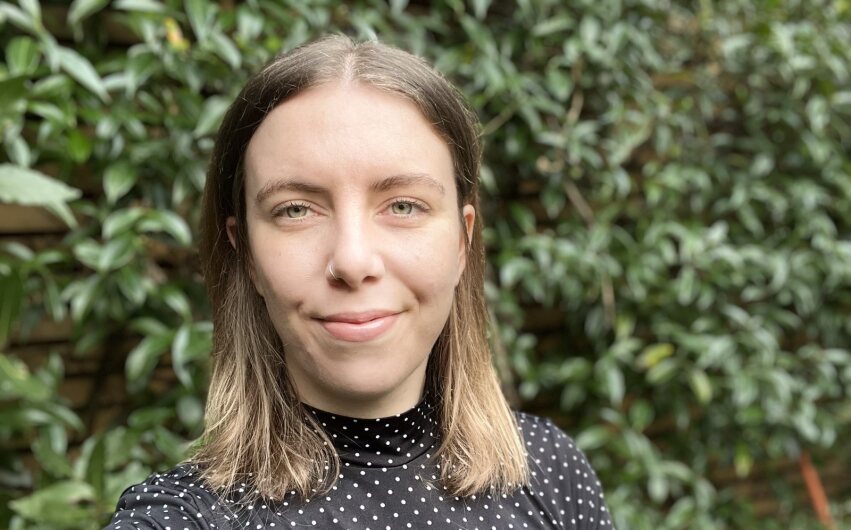Cesla Amarelle
Cesla Amarelle est présidente de la Commission fédérale pour les questions féminines (CFQF) et professeure ordinaire à la Faculté de droit de l’Université de Neuchâtel. Elle y enseigne les droits humains, le droit économique de la libre circulation et le droit des migrations. Cesla a co-fondé et co-dirige le Centre suisse de droit des migrations (CDM). Elle a représenté la Suisse dans le programme européen de recherche European Cooperation in Science and Technology – COST IS 1101, intitulé « Climate Change and Migration: Knowledge, Law, Policy and Theory ». Cesla Amarelle a été précédemment conseillère d’Etat et conseillère nationale pour le canton de Vaud.
Céline Carle-Faye
Céline Carle-Faye, experte en digital depuis 20 ans, se consacre depuis 2018 à la transition numérique responsable. Conférencière reconnue et membre active des associations comme GreenIT, La Fresque du Numérique ou Latitudes-Tech For Good, Céline sensibilise et forme entreprises et institutions à la sobriété numérique en Europe.
Co-fondatrice de Resilio, elle propose formations et ateliers pour réduire l’empreinte environnementale du numérique. Céline coanimera l’atelier « Genre et IA : Déjouons les Biais » le jeudi 13 février.
Manuel Cubero-Castan
Docteur en traitement de signal et fort d’une solide expérience dans l’industrie en recherche et en infrastructure informatique, Manuel Cubero-Castan a rejoint l’EPFL en 2022 en tant que chef de projet numérique responsable. Ses principales missions consistent à mesurer l’empreinte environnementale et sociale du numérique à l’EPFL, construire des actions pour réduire cette empreinte et mener des actions de sensibilisation auprès de l’ensemble des communautés EPFL : estudiantines, scientifiques, techniques et administratives. Manuel coanimera l’atelier « Genre et IA : Déjouons les Biais » le jeudi 13 février.
Roxane de Pelet
Experte des enjeux d’égalité, Roxane de Pelet est lat co-créatrice de la Fresque du Sexisme, outil pédagogique déployé en France et à l’international. Également fondatrice du Projet Epicène, Roxane accompagne les organisations dans la mise en place de stratégies inclusives et dans la lutte contre les stéréotypes et discriminations de genre. Roxane animera avec Anabelle Pasillas un atelier co-construit avec Louise Aupetit : « Décoder et déconstruire les biais sexistes dans l’IA »
Coline de Senarclens
Formée aux sciences sociales, Coline de Senarclens a fondé Empowr.ch, une société qui promeut l’égalité de genre dans une perspective intersectionnelle, à travers trois axes: les connaissances formelles, l’accompagnement et la transmission. Elle travaille également avec la sexologie et notamment sur les sujets liés aux paniques morales et aux tabous. Coline propose des formations, des ateliers et des coaching individuels, collectif ou d’entreprise dans une perspective féministe et basé sur le renforcement du pouvoir d’agir.
Maya Dougoud
Maya Dougoud travaille en tant que conseillère juridique et DPO dans le milieu académique (HES-SO//FR) avec un accent sur le droit des TIC, la protection des données, la propriété intellectuelle et le droit public. Elle mène également des recherches dans le cadre de son activité à la HEG-FR et collabore régulièrement avec le HumanTech Institute de la HEIA-FR. Elle est l’ancienne et la plus jeune présidente de Femmes juristes Suisse. Depuis 2024, elle est membre de la Commission fédérale pour les questions féminines (CFQF).
Silvia Ecclesia
Silvia Ecclesia is a PhD candidate at the Department of Interdisciplinary Studies of Culture at the Norwegian University of Science and Technology (NTNU). Silvia holds a Bachelor’s degree in Social Sciences for Globalisation from the University of Milan and a Master’s degree in International Affairs from the Geneva Graduate Institute. Her research deals with intersectionality and power in future imaginaries of artificial intelligence in the context work. In particular, she investigates AI perception and ethics in the area of human resources and recruitment in Italy. Silvia is part of the Horizon Europe project ‘BIAS: Mitigating diversity biases in the labour market’.
Eduard Fosch Villaronga
Eduard Fosch-Villaronga is Associate Professor and Director of Research at the eLaw Center for Law and Digital Technologies at Leiden University (NL). Eduard is an ERC Laureate and investigates the legal and regulatory aspects of robot and AI technologies.
Mascha Kurpicz-Briki
Mascha Kurpicz-Briki is professor for data engineering at the Bern University of Applied Sciences in Biel, Switzerland, and co-leader of the research group Applied Machine Intelligence and the BFH Generative AI Lab. In her research, she is investigating bias in word embeddings and language models, with a focus on European languages and values. In this context, Mascha is leading the corresponding tasks in the EU-funded project BIAS. She is also the author of the book “More than a Chatbot: Language Models Demystified”, explaining the background behind recent language models to a less technical audience.
Marie Kuter
Marie Kuter est maîtresse d’enseignement à la HEIG-VD, pour la filière Ingénierie des Médias. Consultante en conception et gestion de projets digitaux depuis une vingtaine d’années, Marie est impliquée dans la diversité et l’inclusion, l’accessibilité numérique et la tech for good. Elle a lancé récemment Unitipi, un “one-woman digital studio helping people and animals”. Depuis 2023, Marie a démarré Diverse Personas, une recherche portant sur l’inclusion et la diversité dans la recherche utilisateurs, dont l’atelier « Biais algorithmiques et stéréotypes : un défi pour le design centré utilisateurs » est inspiré.
Sofia Kypraiou
Sofia Kypraiou is a data scientist and researcher working with NGOs Women at the Table and PersonalData.IO, while serving as a research assistant at the University of Neuchâtel. At
PersonalData.IO, she contributes on using personal data access requests to support workers’ rights and analysing worker’s conditions. Sofia was a judge at the 2024 #herhack, the female-led hackathon in Switzerland. She will be leading the ‘AI & Equality: A Human Rights Toolbox workshop’ on Thursday 13.
Liliane Michalik
Liliane Michalik est vice-rectrice de l’Université de Lausanne depuis août 2021. En charge du dicastère « Égalité, diversité et carrières », elle est particulièrement attentive aux questions d’égalité des chances, notamment dans le domaine du numérique, et aux biais et violences qui s’y rapportent. Elle est aussi professeure à la Faculté de biologie et de médecine, où elle a, entre autres, occupée le poste de directrice de l’École de biologie. Ses domaines de recherche et d’enseignement se situent à l’interface entre la génomique, la biologie moléculaire et cellulaire, et les études précliniques.
Estelle Pannatier
Estelle Pannatier est chargée de politique chez AlgorithmWatch CH. Elle a obtenu un master en anthropologie politique et en sciences de la communication et des médias. Estelle a participé ces dernières années à l’élaboration de politiques publiques dans le contexte de la numérisation de l’éducation en Suisse. Avant cela, elle a également travaillé pour la plateforme d’aide au vote en ligne smartvote, pour le Département des affaires étrangères (DFAE) ainsi que pour la RTS.
Anabelle Pasillas
Anabelle Pasillas est experte des enjeux d’égalité de genre et de discriminations. Elle
a créé Egaliki pour accompagner les organisations à favoriser l’égalité professionnelle, à prévenir les discriminations et à construire une IA éthique.
En collaboration avec Roxane de Pelet, elle animera le jeudi 13 janvier l’atelier « Décoder et déconstruire les biais sexistes dans l’IA ».
Samah Posse
Chargée d’enseignements à l’Université de Neuchâtel et chargée de cours et DPO à UniDistance, Samah Posse est également membre de la Commission cantonale d’éthique de la recherche sur l’être humain du Canton de Vaud (CER-VD) en tant qu’experte pour le droit public et la protection des données. Titulaire d’un doctorat en droit et d’un diplôme d’études avancées (DAS) en « Enseignement supérieur et technologie de l’éducation » de l’Université de Fribourg, ses activités de recherches et d’enseignement portent essentiellement sur la protection des données personnelles et le droit public avec un accent sur la transparence de l’activité étatique, la transition numérique de l’administration et le droit de la migration.
Marine Soichot
Aujourd’hui, une femme peut ouvrir un compte en banque, voter, mener une carrière, choisir d’être mère. L’égalité est sur le papier, mais pas dans la réalité. Vêtements, urbanisme, médicaments, grammaire … le sexisme s’immisce encore partout, banal et ordinaire. Marine-Pétroline Soichot débusque le sexisme dans les moindres recoins. Dans le podcast et la conférence-spectacle Chroniques du sexisme ordinaire elle explore des inégalités insoupçonnées entre les femmes et les hommes. Pédagogie, humour et zéro culpabilité : on avance ensemble pour plus d’égalité. Normalienne, agrégée de biologie et docteur en sciences sociales, Marine-Pétroline est un mouton 5 pattes. C’est une vulgarisatrice hors pair qui sait combiner le fond et la forme.
Florent Thouvenin
Florent Thouvenin est professeur ordinaire de droit de l’information et de la communication à la Faculté de droit de l’Université de Zurich. Il est entre autres président du comité directeur du Center for Information Technology, Society, and Law (ITSL) de l’Université de Zurich et président du Forum suisse du droit de la communication (SF-FS). Dans le cadre de ses recherches, il s’intéresse aux questions juridiques liées à la numérisation, en mettant l’accent sur le droit d’auteur et la protection des données. Il se concentre actuellement sur l’élaboration d’un cadre juridique suisse pour les utilisations de l’« intelligence artificielle » (IA) et sur les questions fondamentales du droit (de la protection) des données.
Marianne Wannier
Marianne Wannier a pris ses fonctions de Vice-présidente pour le développement humain (VPH) et membre de la Direction de l’EPFL au 1er janvier 2025. Elle est également membre du Conseil de Fondation de la FAPE (Fondation Accueil Petite Enfance EPFL-UNIL) et représentante de la Direction auprès de la Délégation de la CHEL aux sports universitaires UNIL-EPFL. Avec les services d’Egalité, Diversité et Inclusion au sein de son organisation, la Vice-présidence veille à l’application de pratiques respectueuses de l’intégrité physique et morale des membres de la communauté EPFL.
Josephine West
Josie West is a Gender and Assistive Technology researcher at the Global Disability Innovation Hub, with nearly a decade of research experience developing qualitative research approaches. Josie recently earned her Ph.D. in Digital Humanities from King’s College London. Her research explored how gendered politics inform digital exclusion, invisibility and unfreedom within the online sex industry. Josie is committed to advancing participatory action approaches and understanding of the intersections between technology, disability, gender and sex work.
Julie Winz
Julie Winz travaille comme productrice pour les podcasts Société & Culture de la Radio télévision suisse, tels que Crimes suisses ou Les histoires de Millie D.. En parallèle, elle occupe aussi le poste de journaliste pour le département de l’Actualité de la RTS. Depuis quelques années, elle a développé une activité indépendante dédiée à la modération de tables rondes et l’animation d’événements, notamment pour des institutions telles que l’Université de Lausanne ou l’EPFL.





















